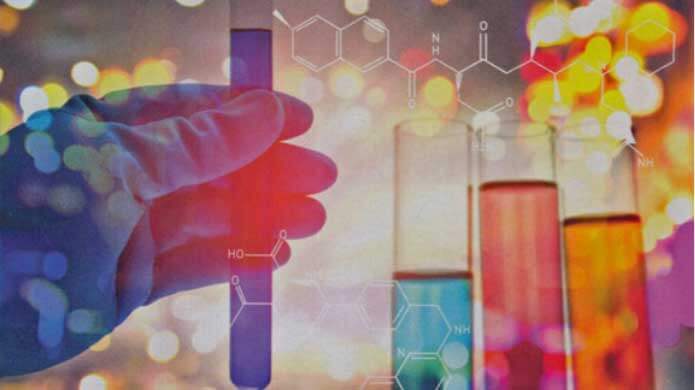Many people may not be familiar with stem cell treatments. Stem cells have been studied by a lot of scientists since the 1950’s, but using stem cell for treatment only started in the 1990’s.
Your understanding of stem cell treatments is important before you or your loved ones undergo any procedure. It is also best for you to learn about the different kinds of stem cells, their origins, and the benefits that you will gain after undergoing such treatments.

Stem cells are the only cells that can develop into different types or can divide into more cells. There are four types of stem cells:
The cells collected from bone marrow are called adult or tissue-specific stem cells. Their ability to become other types of cells is limited to where they are in the body (e.g. heart and lungs). Further research has shown that these stem cells can develop into other types of cells, such as induced pluripotent stem cells, through manipulation. We only use your own stem cells for our procedures.
These stem cells are adult cells genetically programmed to act like embryonic stem cells. To avoid immune system rejection, scientists have created these new cells. This type of cell has similar characteristics to embryonic stem cells, but further studies are still undergoing to understand their effects on the body. We do not use these.
These kinds of stem cells are extracted from blastocyst, embryos that are a few days old. To acquire these cells, scientists extract them from the inner cell wall of the embryo and grow them in special laboratory conditions.
These stem cells have the ability to regenerate or repair cells. They have potential to turn into any type of cell and can divide into more stem cells. The use of these is extremely restricted and we do not use any embryonic cells.
Cells that are extracted from the amniotic fluid or umbilical cord after childbirth are prenatal stem cells. They have the ability to change into specialized cells.
Cord blood stem cells have been successfully used to treat children with blood cancers. Mesenchymal stem cells in the umbilical cords can theoretically help reduce inflammation, modulate the immune system, and secrete factors that help tissue to regenerate.
Amniotic fluid is the liquid that protects the fetus inside the uterus. Stem cells have been found in samples of amniotic fluid from pregnant women. Determining the uses of stem cells in amniotic fluid is still under further research. We do not use any prenatal stem cells.
Every day, these cells can replenish or repair dead specialized cells through cell differentiation. The stem cells in our skin, for example, receive a signal for a need of new epithelial cells. The stem cells then divide, and the daughter cells become the specialized cells the body needs. However, cells slowly lose this ability over time.


Stem cells have been used to treat blood diseases such as cancers. So far, the FDA only allows the use of bone marrow stem cells. However, research for stem cell treatments is continuously being studied by scientists and physicians.
National Academies’ National Research Council and Institute of Medicine have set strict rules on the use of embryonic stem cells for research. Embryos from in vitro fertilization clinics cannot be donated or sold to stem cell research without the donor’s consent.
Even though the embryonic stem cell has been the most promising among the types of stem cells, the extraction of these stem cells is a cause for moral and ethical debate. Some people believe that life starts from conception so they oppose the research and use of these cells. We do not use any embryonic stem cells.
Amniotic stem cells are extracted through amniocentesis after a woman gives birth. There is still no proof that these stem cells can cure diseases or health problems. Some companies advertising stem cell treatment claim that amniotic stem cells can treat regenerative problems. However, using a treatment that is not FDA approved can only worsen your condition or waste your money. We do not use any prenatal stem cells.
There is news about failed clinical trials, false information, and money spent on unapproved treatments. Only a few treatments are approved by the government. So, beware of some clinics that offer unapproved stem cell treatments.
If you have decided to undergo stem cell treatment, it is best to check the clinic and the stem cell treatment they offer. Trust only FDA approved treatments for your safety.
For trusted stem cell treatment, Boston Applied Biologics is the clinic for you. Our director has more than 20 years of experience in pain and regenerative medicine. We offer personalized treatment programs based on your condition. Our stem cell treatment can help increase your mobility and relieve you from pain. To learn more about stem cell treatment, contact us today.
IMPORTANT! This information is for educational purposes only and is NOT intended to replace the care or advice given by your physician. Boston Applied Biologics is not offering regenerative cell therapy or other regenerative therapies as a cure for any condition, disease, or injury. No statements or implied treatments on this website have been evaluated or approved by the FDA. This website contains no medical advice. All statements and opinions provided by this website are provided for educational and informational purposes only and we do not diagnose or treat via this website or via telephone. We do not claim that any applications, or potential applications, using autologous regenerative cells and other regenerative cells are approved by the FDA, or are even effective. We do not claim that these treatments work for any listed nor unlisted condition, intended or implied. Always seek the advice of your physician or other qualified health provider before starting any new treatment or with any questions you may have regarding a medical condition. For more information see our Medical Disclaimer.
Copyright © 2025 Boston Applied Biologics, LLC. All Rights Reserved.

How Orthobiologic Therapy can relieve your joint, muscle and tendon pain without surgery so that you can get back to enjoying your life*
We are committed to your privacy. Boston Applied Biologics uses the information you provide us to contact you about relevant content, products, and services. By providing us with your information you are consenting to the collection and use of your information in accordance with our Terms of Service and Privacy Policy. You may unsubscribe from these communications at any time.